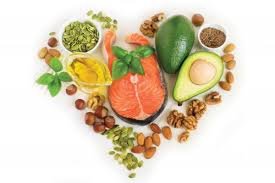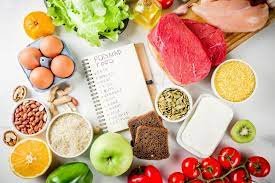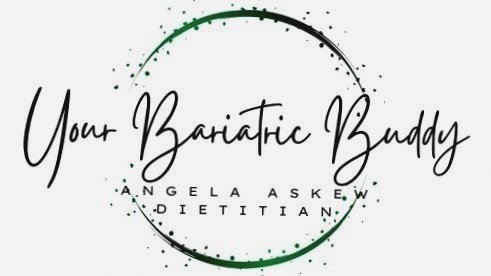LIVING WITH DIABETES
When you have diabetes, the food you eat is very important. Choosing to eat a healthy diet will help control your blood sugar, lower cholesterol, and promote a healthy weight.
The guidelines below will help develop good eating habits.
Eat regular meals and choose appropriate portion sizes.
Eating regular meals at regular times will help control your blood sugar level. Eating large meals containing carbohydrates may raise your blood sugar as well as lead to unwanted weight gain. If you are on tablets or insulin you my also need to have a snack between meals.
Include carbohydrate food at each meal and snack.
Carbohydrate includes starchy food, such as;
Bread, crackers/biscuits, crumpets, muffins
Cereal, rice, noodles, pasta
Legumes (baked beans, lentils, chickpeas, kidney beans).
· Potato, sweet potato, corn and taro.
Other foods that contain carbohydrate include fruit, low fat milk and yoghurt, containing the natural sugars fructose and the milk sugar lactose.
Choose foods high in fibre.
Foods high in fibre are best eg. Wholegrain breads and cereals; fruits and vegetables. Fibre keeps your bowels regular and can help manage blood sugar levels.
Eat less saturated fat and limit excess sugar.
Avoid using butter, margarine and oils in cooking, trim fat from meat and remove skin of chicken. Where possible limit takeaway foods especially those fried or containing pastries. Limit foods that are kilojoule dense and nutrient poor such as soft drinks, cakes, biscuits and lollies as these may cause fluctuations in blood sugar and promote unwanted weight gain.
Include daily physical activity.
Participating in regular physical activity will help control your blood sugar levels, help you lose weight and feel great!
A word on carbohydrates...
Remember the quality of carbohydrates are just as important than the amount of carbohydrates you consume at each meal. Carbohydrates are the body's primary source of fuel and are essential in a balanced diet.
A Low Glycemic Index (GI) diet can help manage your blood sugar levels as it can help your body utilise the sugars more efficiently as well as helping you feel fuller for longer as low GI foods release their sugars more slowly in the body.
Visit Diabetes Australia for more information.

LOOKING AFTER YOUR HEART
Following a healthy balanced diet and maintaining a healthy weight with regular physical activity can help you maintain a healthy heart.
Fat around the waist increases your risk of developing heart disease and other chronic diseases such as diabetes.
For most adults a waist measurement of greater than 94cm for men, and 80cm for women is an indicator of fatty deposits located around the heart and other internal organs and can be a sign of your risk for developing chronic diseases.
What is cholesterol?
Cholesterol is a fatty substance found in our blood which is made by our liver. Cholesterol also plays an important role in making bile, hormones and Vitamin D.
Dietary sources of cholesterol include animal products such as egg yolk, shellfish such as prawns, caviar and offal such as brain, liver and kidney.
Cholesterol is found ONLY in animal products.
Too much cholesterol may be a problem as it can cause a fatty build up in the blood vessels making it harder for blood to flow through.
Saturated fat is mainly found in animal foods as well as palm and coconut oil. These are known as ‘bad fats’ that can raise the level of ‘bad’ cholesterol that can increase the risk of developing heart disease.
Trans fats are also bad fats’ as they increase ‘bad’ (LDL) cholesterol and increase total cholesterol as well as lowing the ‘good’ (HDL) cholesterol. Trans fats are hydrogenated vegetable oils often used in fast foods and in commercially prepared biscuits, cakes and pastries due to their extended shelf life.
Avoid food high in SATURATED FATS, such as:
Butter, lard, ghee, dairy blends, creams;
Fatty meat, processed meats (sausages, bacon, salami);
Full fat dairy (milk, cheese, yoghurt, ice cream);
Plant sources include coconut and palm oil;
Take-away food (cakes, biscuits, pastries, chocolate, deep fired foods and potato chips).
Unsaturated fats can be used instead of saturated fats in the diet. These fats are still high in kilojoules and so need to be eaten in moderation.
Monounsaturated fats are known as ‘good fats’ as they lower total and ‘bad’ LDL cholesterol. Monounsaturated fats include:
Canola, olive, macadamia, peanut and sunflower oil,
Avocado and olives,
Almonds, peanuts, cashews, hazelnuts and pecans,
Peanut butter and almond spread.
Polyunsaturated fats are known as ‘good fats’ as they can lower total cholesterol and ‘bad’ LDL cholesterol levels. There are two main types Omega-3 fatty acids and Omega-6 fatty acids. Polyunsaturated fats include:
Sunflower, corn, sesame and grape seed oils;
Walnuts, pine nuts, sesame seeds and sunflower seeds and linseed;
Tahini spread;
Fish and seafood (sardines, mackerel, salmon, tuna, gem fish and blue eye).
Plant sterols are components of some foods that compete with cholesterol for absorption. When plant sterols are absorbed instead of cholesterol, cholesterol is removed from the body. Plant sterols are found in some fortified margarines, milk and yoghurts. Plant sterols are naturally found in orange and yellow plant foods and vegetable oils.
Sodium in large amounts can increase blood pressure and increase your risk of cardiovascular disease. A large proportion of the sodium in our diet comes from processed foods where it has been added for taste and to prolong shelf life. It is added to bread, breakfast cereals, butter and margarines as well as in many take-away and snack foods.
To decrease the amount of salt in your diet avoid adding salt to meals when cooking and at the table. Choose low sodium food options. Reading the nutrition information panel on packaged foods can help you choose low sodium foods. Foods which list sodium as 120mg per 100g or less are low in sodium.
Alcohol can increase blood pressure as well as your triglycerides so it is important to drink in moderation according to the guidelines of:
Women- no more than one drink per day, and
Men- no more than two drinks per day, both with 1-2 alcohol free days per week.
Visit the Heart Foundation for more information.

IBS & FOOD INTOLERANCES
Irritable Bowel Syndrome (IBS) is a common gastrointestinal disorder which is characterised by symptoms including bloating, excess wind, abdominal pain and diarrhoea and/or constipation.
Managing the types of sugars or carbohydrates in our diets can help to reduce symptoms. Many IBS suffers have found that following a Low FODMAP diet can significantly improve their symptoms.
Fermentable Oligosaccharides, Dissaccharides, Monoaccharides and Polyols (FODMAP's) are sugars found naturally in many foods we eat and include lactose found in dairy foods, fructose found in many fruits and fructans such as in onions among others. While FODMAPs are poorly absorbed in all people their action of fermentation in the bowel resulting in gas production is likely to be experienced more significantly in an IBS sufferer.
It is essential to work with your Dietitian to identify intolerances as unnesscary restrictions of foods and food groups can compromise nutritional status.

MAINTAINING A HEALTHY WEIGHT
Excess body weight can increase the risk of disease and reduce life expectancy. Being overweight increases the risk of diabetes, heart disease, hypertension, gall bladder disease, some cancers and reproductive disorders.
Reducing your body weight by even 5-10% can have positive effects on your general well-being. People who are considered a healthy weight tend to be more active, have more energy, better mobility and breathe easier.
What is the Body Mass Index?
Your Body Mass Index (BMI) is calculated as your weight in kg divided by your height in metres squared. Your BMI is used to give you an idea if you are underweight, ideal weight or overweight or obese for your height.
A normal healthy weight is defined as having a BMI between 18.5 to 25, overweight from 25 to 30, and obese over 30. If you are over 65 years the healthy weight range is between 22-27. The BMI may not be a suitable indicator of health for all people such as athletes with higher muscle mass.
Why do people gain weight?
Weight gain is usually the result of eating more than the body needs and not doing enough physical activity over a long period of time. Our sedentary lifestyles often see us taking in more energy than our body burns up and the result is excess energy stored as fat.
Time to start a new diet?
There are an endless array of new diets and weight loss methods all claiming to be the latest miracle cure. Unfortunately most diets and weight loss products offer a quick fix and are useless for permanent weight control.
Fast weight loss which occurs with fad diets is mainly a loss of water and lean muscle tissue. Once you stop the diet, the lost water soon returns and the lean muscle tissue does not come back unless you exercise.
So how do I lose weight?
The only way to lose excess fat is by taking it slowly. Fat on the body doesn’t appear overnight and certainly doesn’t disappear quickly. To lose fat and keep it off, you need to change the eating and exercise habits which caused the fat to accumulate in the first place. Starving or skipping meals is NOT effective. Without food, your body will think it needs to conserve everything you do put into it, storing energy and burning less calories.
By following a sensible, long term healthy eating and activity plan developed with the guidance of a qualified Dietitian you can successfully lose weight and keep it off!
How much weight should I lose?
A weight loss of no more than ½-1kg per week is recommended. A loss of 1 kg per month is a good goal for many. Slow, steady weight loss is more likely to be sustained. Losing 1 kg per month may seem small but if you keep doing it for 2 years you will lose 20-25kg which will have massive health benefits.
Body weight can fluctuate substantially, depending on the time of day, temporary fluid retention or increasing muscle mass with exercise. You should not weigh yourself more than once per week using the same scales at the same time of the day.
Here are a few tips to get you started...
Consume appropriate portion sizes and consume regular meals.
Drink at least 6-8 glasses of water per day
Try to eat less fat, especially saturated fats.
Limit intake of foods and drinks containing added sugar.
Avoid feeling hungry by including plenty of high fibre foods such as plant foods.
Be physically active everyday.
Practice Mindful Eating Patterns




